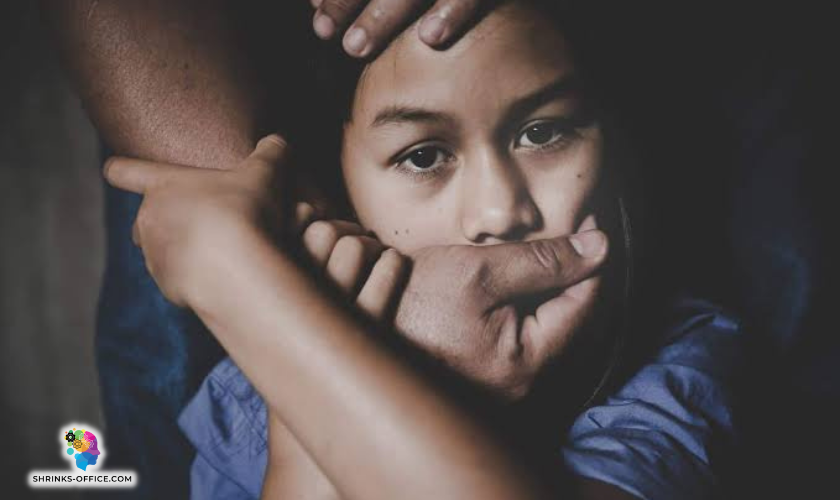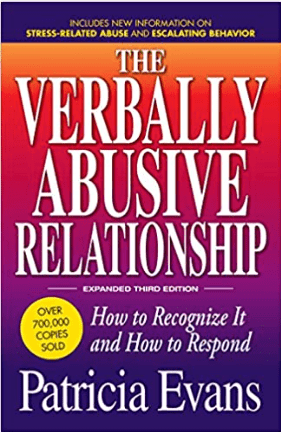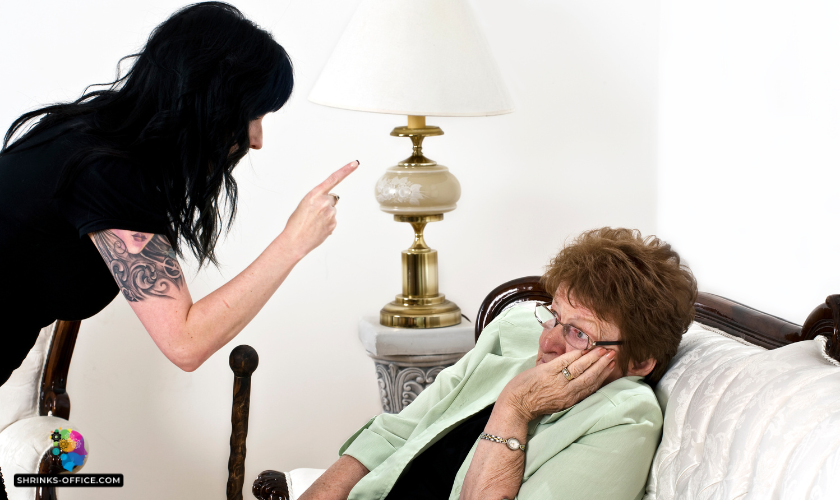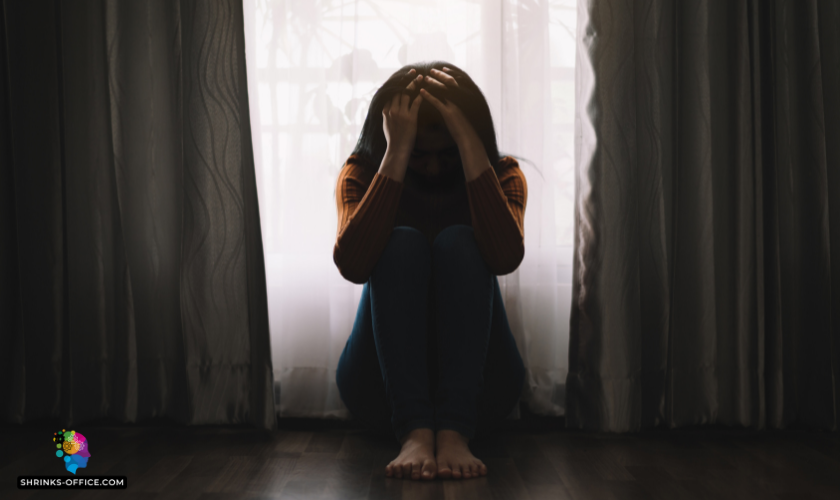How To Heal From The Emotional Impact Of Verbal Abuse
If someone uses gestures and says things to you that aim to make you feel intimidated, sad, confused, mad, or vulnerable, or cause you emotional trauma, they are behaving in an abusive way. Verbal abuse has the capacity of causing mental health issues. Even if it doesn’t, it’s still considered abuse so far the intention was to hurt you.
If you are suffering from verbal abuse, you are not alone. This article will take you through what you have to know and what you have to do.
What Is Verbal Abuse?
Verbal abuse involves intentionally using language and gestures to cause harm. Just like other forms of abuse, the goal of verbal abuse is to exert power and control over the other person. In verbal abuse, words are used to threaten, intimidate, confuse, or criticize. Some of the most common signs of verbal abuse include verbal attacks, threatening, belittling, screaming, blaming, sarcasm, constant criticism, insults, gaslighting, shaming, accusing, and trivializing among others
Is Verbal Abuse The Same As Emotional Abuse?
Verbal abuse is considered a form of emotional or psychological abuse while emotional abuse doesn’t always include abusive words, however. Emotional abuse can also involve controlling and isolating behaviors like preventing you from receiving healthcare, keeping you from loved ones, ignoring your needs and making decisions for you among others.
Ways To Heal From The Emotional Impact Of Verbal Abuse
Identifying the early signs of verbal abuse can help you stay safe physically and mentally. If you develop skills to cope with and stop recurrent verbal abuse, it can help safeguard your mental well-being.
If you feel unsafe, try asking for support from a trusted relative, friend or counselor. If you’re experiencing domestic violence, you’re not alone, support is available and there are lots of ways you can approach the situation.
Here are some tips to heal from the emotional Impact of verbal abuse:
1. Protecting your self-worth

A 2019 study of college students indicates that verbal abuse aimed at hurting your self-esteem can be damaging to your mental health [1]. The best way to mentally handle verbal abuse is to not let words have power over you. Have a strong sense of self-worth. Know in your heart that a person has no right to speak to you in a harsh way, and that it is a reflection on them, not on you.
Some strategies to boost your sense of self-worth include using positive affirmations, identifying and affirming your core values, ending relationships with an abusive partner or friend, trusting your gut, practicing self-care, engaging in self-respect, and self-compassion. [2].
2. Harnessing empathy

Depending on the nature of the relationship, it’s natural to want to fire back or get defensive when you feel attacked, offended, or hurt. Protecting yourself is natural and is very necessary.
However, understanding where someone is coming from can prevent one from internalizing their abusive behaviors. The best way to handle verbal abuse mentally is to use empathy to understand the source. What are they feeling? What are they going through? Why are they in so much pain that they want to hurt me and others with their words?” [3].
These points out that your empathy isn’t a gift to them and that you’re not rewarding or tolerating their behaviors, you are instead helping build a person's shield against verbal abuse that will allow you to openly share when your boundaries have been crossed.
Another effect of relying on empathy is that it can lower the impact the abuse has on you by switching your focus from pain to understanding. Research shows that reframing worrisome thoughts greatly benefits one's health [4].
Practicing compassion and empathy may not be that easy to do on your own, especially if the abuse is severe. Try seeing a therapist or support groups.
3. Re-centering

Emotional and verbal abuse can end up making you feel off guard and flustered and it’s easy to get swept away in the flurry of words and emotions coming your way. Feeling this way is normal, but it could hurt you if it’s not addressed.
Do a self-check when things are going out of hand. Try out Grounding and self-soothing techniques, it can help you cope [5].
4. Set boundaries and keep them

Boundaries may be difficult to maintain if they are not made clear. Before you engage with someone who you know has a history of verbally abusive behavior, try actively calming and grounding yourself. You can then remind yourself of what your rules and boundaries are [5].
5. Taking the high road

Resisting the urge to retaliate when someone verbally abuses you may be difficult, but it may be an important step to ending the verbal abuse cycle, this verbal abuse will have a tendency to escalate. Take deep breaths, and try to regulate your emotional reaction to their abuse. Remind yourself that this isn’t your problem but theirs [6].
6. Walk away

Consider walking away when someone is trying to hurt you with words, if it will make you feel safe. That is, you could respond to verbal abuse by calmly walking away [7].
You could also let emotional abusers know in a level tone of voice that how they are speaking is hurtful and inappropriate and that there are different and kinder ways they could express themselves to you. Expressing feelings and opinions can be valid and healthy, but doing so in a way that hurts others is not.

7. Seek therapy And support from loved ones
A very effective way to heal from emotional abuse is to seek emotional support from a mental health professional who will recommend coping strategies to aid your healing process. You should also seek support and care from your loved ones and family members, they can serve as a strong support system.
What Should You Do If Verbal Abuse Doesn’t Stop?
Setting boundaries doesn’t necessarily mean the other person will respect them. If verbal abuse continues, try seeking professional guidance first, but you may ultimately need to end the relationship [8]
If emotional or verbal abuse doesn’t stop, you can create distance, you can also go for counseling and encourage the other person to go too. Remember that you don’t have to maintain a toxic relationship that constantly causes you emotional pain. The person needs to stop abusing you or you need to stay away from them [9].
If you do not feel safe ending the relationship or taking your leave, creating an exit plan can help.
Signs Of Emotionally Abusive Relationship
Some of these behaviors may signal that you are being emotionally abused, and they have to be addressed to maintain healthy relationships.
1. Shaming
Shaming is any action or word intended to make one's spouse feel ashamed of themselves. When your spouse shames you, it can make you feel wrong for your thoughts or actions.
Shaming can include expressions like, “Why would you do that?” It may also take the form of comments that target insecurities, such as your body image and so on.
2. Blaming
Emotionally abusive blaming in a relationship can take the form of “flipping the switch,” or suddenly blaming you for someone else’s behaviors or reactions.
Comments like “I wouldn’t have done it if you hadn’t made me so angry,” is an example of blaming that removes responsibility from the person with abusive behaviors.
3. Criticizing
Criticism that’s cruel or that is not constructive may be emotionally abusive. Interrupting your mid-conversation to say you don’t know when to shut up, for example, can be a form of emotional abuse in a relationship.
4. Guilting
Guilt can be a powerful manipulation tactic in relationships. When you feel as though you have let your spouse down, you are not good enough, or you are a disappointment, you may change your behavior to avoid that feeling in the future.
5. Humiliating
One of the more obvious forms of emotional abuse in a relationship is humiliating. This may come as public embarrassment, or private behaviors by an abusive partner that degrade you and make you feel less than human.
6. Ridiculing
Name-calling, mean jokes, and sarcasm can all be forms of abusive ridicule in a relationship.
7. Dismissing
When your thoughts, values, or opinions are dismissed by your spouse, it can make you feel unimportant. Over time, you may question if your input in the relationship has any value.
8. Accusing
Unfair accusations in relationships can manipulate one into people-pleasing behaviors. If your spouse is constantly accusing you of infidelity, for example, you may go to extra lengths to be attentive toward them. You might also stop leaving the house out of fear that your spouse might confront you about where you are.
9. Neglecting
When your physical or emotional needs aren’t met in a relationship, this can be a form of neglect. Emotional neglect might mean deliberately withholding affection, or punishing one's spouse with the silent treatment.
10. Monitoring
Monitoring can destroy your sense of privacy in a relationship. Reading your messages, scanning your social media, and showing up at events you’re attending are all forms of monitoring in relationships.
Other Forms of Abuse: Physical and Sexual Abuse
Abuse can have a long-term impact on people’s well-being, especially children and teenagers. Common types of abuse include emotional, physical, and sexual abuse.
Vital warning signs of abuse include withdrawal from usual activities or friends; behavior changes; anxiety; low self-esteem; depression; apparent lack of supervision; frequent school absences; attempts at running away; defiant behavior: reluctance to leave school activities; and self-harm [10].
Parents may be at a higher likelihood of becoming abusive if they have a history of being abused/ neglected as a child, mental or physical illness, developmentally or physically disabled child, substance abuse issues or social isolation, financial stress, or unemployment [10].
According to the Centers for Disease Control and Prevention, at least one in seven children have experienced some form of child abuse [11]. In 2017, an estimated 1,720 children died from abuse. [12]. Abuse especially during childhood and adolescence can contribute to a higher risk of health issues in adulthood. Victims of child abuse are vulnerable to developing addiction, depression and post-traumatic stress disorder (PTSD).
It is crucial that victims of physical or sexual abuse, especially children and adolescents seek mental health treatment. These services include comprehensive evaluation, family, and group therapy, an individually tailored treatment plan that may include any combination of individuals, and, when indicated, medication management from a psychiatrist. All treatment plans require family consent and regular participation.
The word abuse covers many various ways someone may harm a vulnerable person. Physical abuse is an intentional bodily injury or hurt. Some of the examples include slapping, kicking, choking, shoving, pinching, or inappropriately using drugs or physical restraints.
Sexual abuse on the other hand is nonconsensual sexual contact (any unwanted sexual contact). Examples of sexual abuse include unwanted touching, rape, coerced nudity, and sexually explicit photographing among others.
Signs of Physical Abuse

The following signs may suggest an individual is a victim of physical abuse:
- Bruises, welts, black eyes, rope marks, and lacerations
- Fractures (broken bones)
- Punctures, open wounds, cuts, untreated injuries in various stages of healing
- Broken eyeglasses or frames, or any physical signs of being restrained or punished
- Laboratory findings of either an underdose or overdose medications
- The individual reports being hit, kicked, slapped, or mistreated
- Change in behavior in vulnerable adult
- The caregiver’s refusal to allow the vulnerable adult to see a visitor.
Signs of Sexual Abuse

The following signs may point out that an individual has been sexually abused:
- Bruises around the genital area or breasts
- Unexplained genital infections or venereal disease
- Unexplained anal or vaginal bleeding
- Stained, torn, or bloody underclothing
- An individual’s report of being raped or sexually assaulted.
Conclusion
In conclusion, healing from the emotional impact of verbal abuse requires acknowledging the trauma, seeking support from loved ones or professionals, practicing self-care and self-compassion, setting boundaries, and potentially seeking therapy to process and overcome the effects of the abuse. It's a journey that requires patience, self-reflection, and a commitment to prioritizing one's mental and emotional well-being. If you are experiencing emotional abuse, it's best to seek professional help.
FAQ
What are some signs of verbal abuse?
Some signs of verbal abuse include shaming, blaming, criticizing, guilting, humiliating, accusing, and neglecting.
References
- Verbal Abuse Related to Self-Esteem Damage and Unjust Blame Harms Mental Health and Social Interaction in College Population
- How to Use Positive Affirmations for a Fulfilling Life
- Frequency and Impacts of Verbal Abuse on Healthcare Workers in a Secondary Healthcare Structure in Greece
- Partners' Empathy Increases Pain Ratings: Effects of Perceived Empathy and Attachment Style on Pain Report and Display
- Grounding Exercises: Using Your 5 Senses for Anxiety Relief
- Do You Know How to Manage Your Emotions and Why It Matters?
- 10 ways to fight your fears
- Verbal Abuse in Young Adult Relationships
- Domestic Violence and Abuse in Intimate Relationship from Public Health Perspective
- Consequences of Child Abuse and Neglect
- Economic evaluations of interventions focusing on child abuse and neglect in high-income countries: a systematic review
- The Devastating Clinical Consequences of Child Abuse and Neglect: Increased Disease Vulnerability and Poor Treatment Response in Mood Disorders





